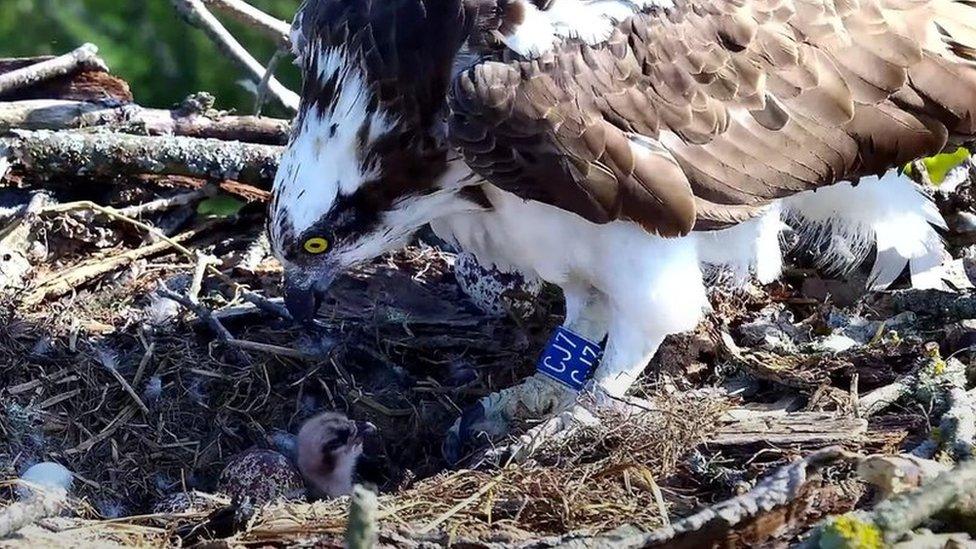Two of three osprey chicks hatch at nature reserve
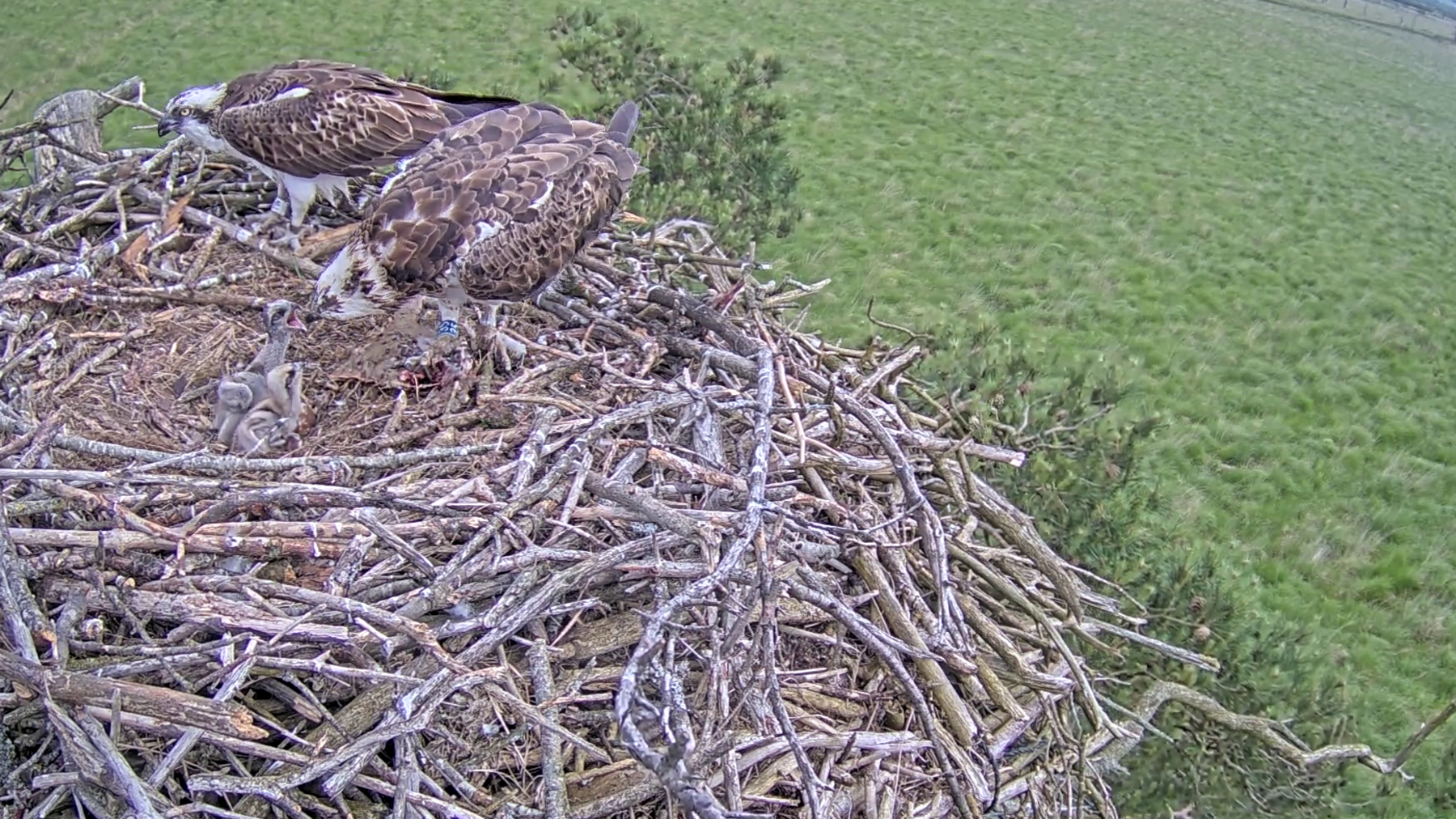
The chicks hatched at Foulshaw Moss in May
- Published
Two out of three eggs laid by an osprey have hatched in a nest at a wetland nature reserve.
The two chicks, who appear to be "healthy and strong, external", hatched at Foulshaw Moss on 24 and 26 May, Cumbria Wildlife Trust said.
The trust said there could be a variety of reasons why the third failed to hatch, but added there would be "more food and less competition for the other two".
It is the 11th running year the parent birds, Blue 35 and White YW, have raised their chicks at the site near Witherslack.
The birds of prey returned to their nest in spring having spent the winter in West Africa.
Ospreys, which have a 5ft wingspan, became extinct in England in 1840 but were reintroduced in the 1990s.
They migrate each year to Africa or Europe before returning to breed.
Blue 35 and White YW first nested at Foulshaw Moss in 2013.
They have been "carefully incubating the eggs over the past few weeks, protecting the nest from intruders, preparing a deep egg cup and building up the sides of the nest with twigs and sticks", the Trust explained.
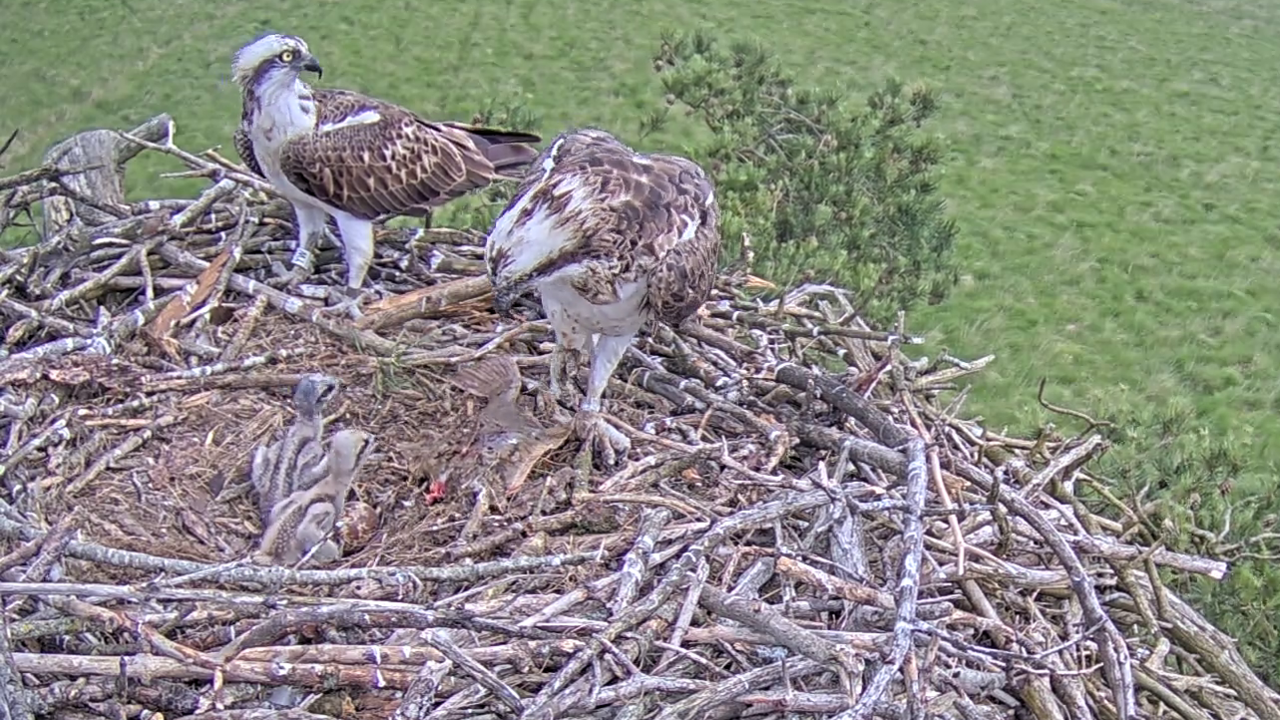
Cumbria Wildlife Trust say the two chicks "should both do well this year"
Paul Waterhouse, from Cumbria Wildlife Trust, said the most likely cause for the third chick not hatching was "bad weather or simply that the egg wasn't fertilised properly".
"It’s unlikely to be down to disturbance because of the remote location of the nest," he explained.
“When there's a third chick, it can struggle to compete for food with its older siblings and lag behind."
Adult ospreys can live up to 25 years, with the birds being faithful to their nest site and their mate.
The ospreys can be viewed via the trust's nest webcam, external.
Follow BBC Cumbria on X (formerly Twitter), external, Facebook, external and Instagram, external. Send your story ideas to northeastandcumbria@bbc.co.uk.
Related topics
More stories from BBC North East and Cumbria
- Published23 May 2024
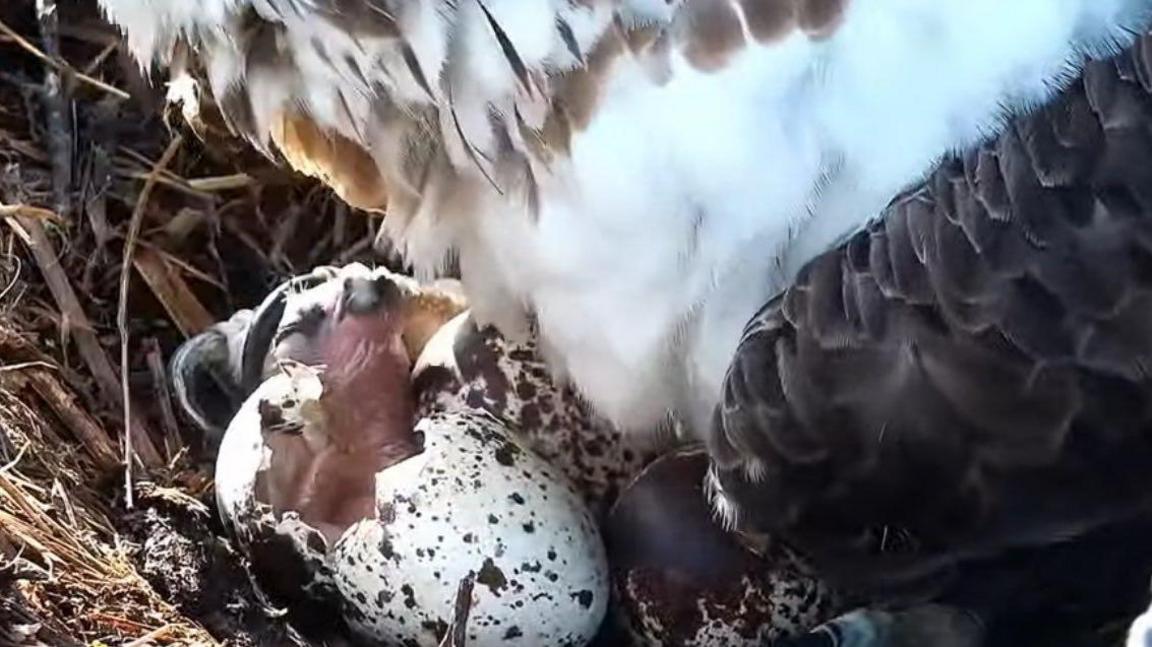
- Published4 June 2023
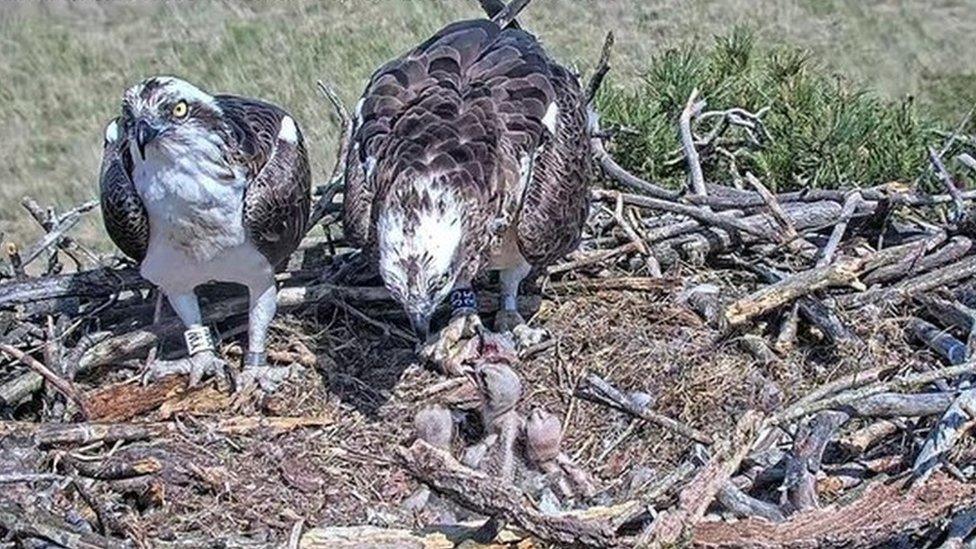
- Published31 May 2023
